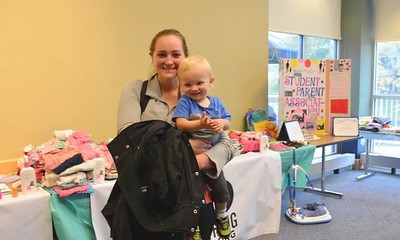A report from the State of California shines a new light on the struggles of student parents at the community college level. Using data from 2018, the authors found that about 13.5% of applicants to the state’s community colleges that year were parents. According to the California data, student parent applicants were most likely to be older than traditional college age. They were also more likely to be women.
Of the 202,000 student-parents who applied for admission in 2018, about 145,000 actually enrolled. Once enrolled, however, student parents were less likely to complete a degree or certificate. Through interviews, student parents described a hostile environment on campus that made accessing student services more difficult. They also described difficulty in meeting their basic needs.
Childcare proved to be one service that significantly challenged student parents. Counselors regularly told student parents who brought children to counseling appointments to reschedule without their children. Others pointed to campuses that prohibited children in certain buildings. Many parents could not access campus-based childcare facilities due to the facilities’ hours, available space, or age restrictions. Still others who could not adequately meet their basic needs said that being able to afford computers and Internet service was a barrier to continuing.
The researchers found that about 30% of parents did not return to school for a second year, and only about 25% of parents completed a degree or certificate within 6 years. This was true even though parents have more motivationto complete degree programs.
Community colleges must support student parents
With the imminent enrollment of the Frontliners and the older student participants in Michigan Reconnect, community colleges must find ways to support student parents. In the California study, about 10% of that state’s community college student body are parents. The majority of them are older. They already experience the pressures of trying to support their children while working low-income jobs. They will not succeed in hostile, non-supportive learning environments.
WCC happens to be well-resourced thanks to the taxpayers of Washtenaw County. Unfortunately, minimal Board oversight guarantees that these financial resources, which could better support students, will pay for less meaningful things. Getting WCC engaged in the needs of the student community requires a Board that is engaged in WCC’s mission. The notion that WCC can somehow scrape by with a disconnected Board that limits itself to dispensing advice is ludicrous.
The taxpayers did not elect the WCC Board of Trustees to dispense advice. We elected them to provide oversight. With the influx of non-traditional students, only authentic fiscal oversight and full mission engagement will make these programs work.
Photo Credit: Penn State, via Flickr






























